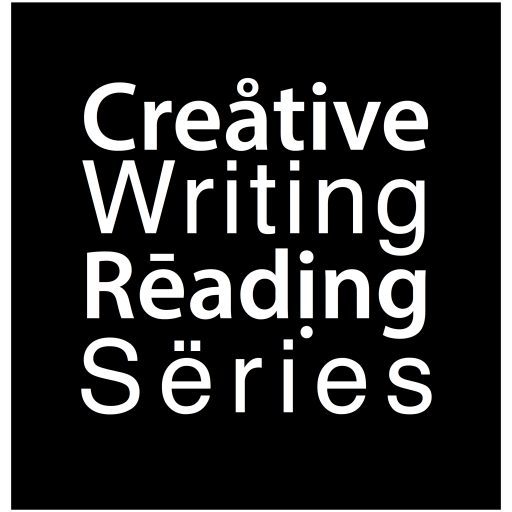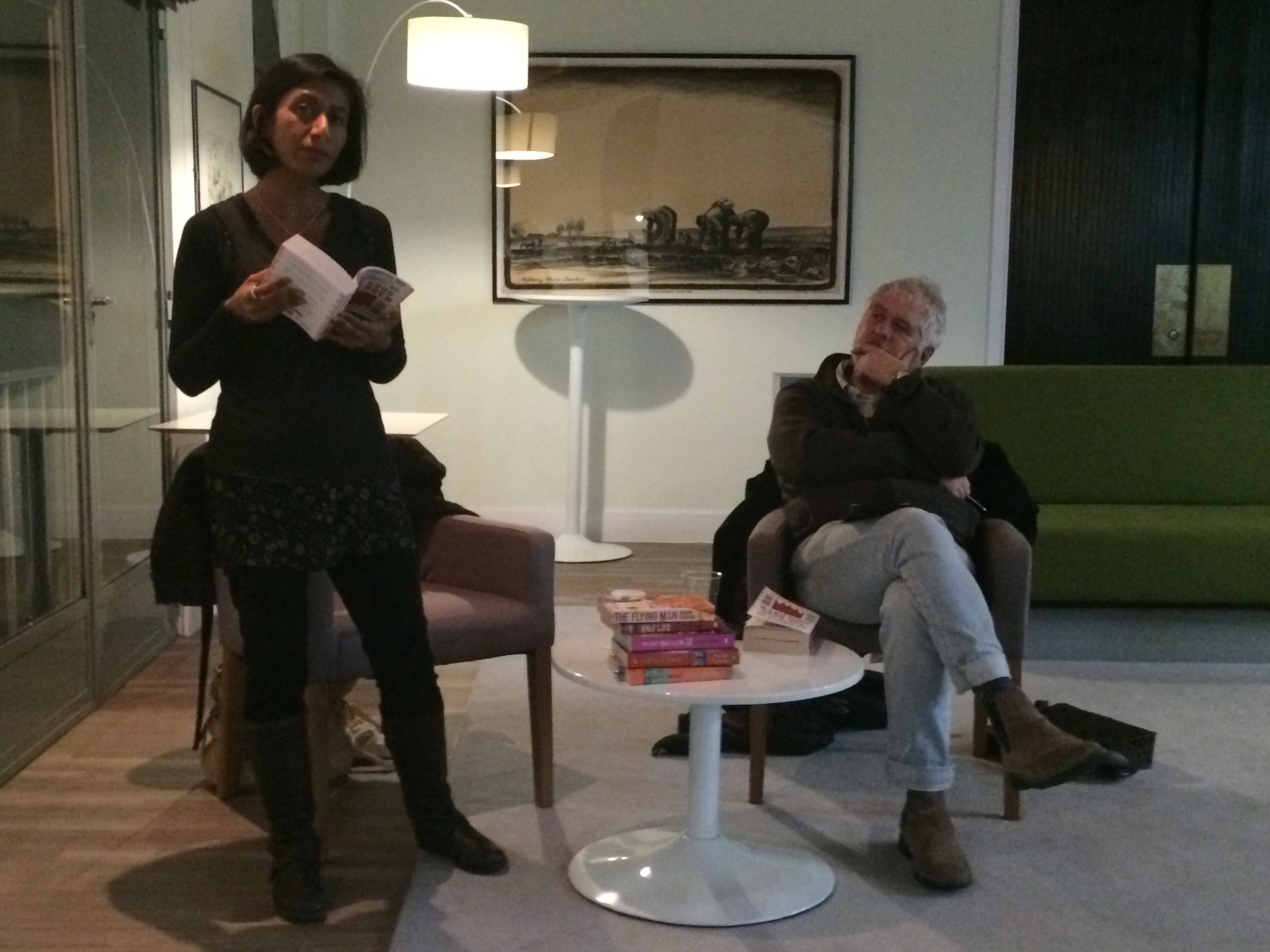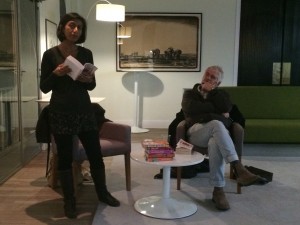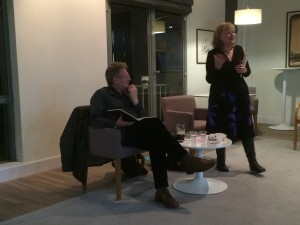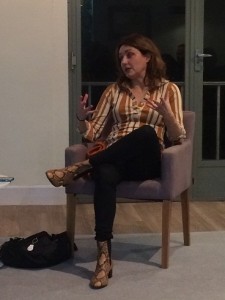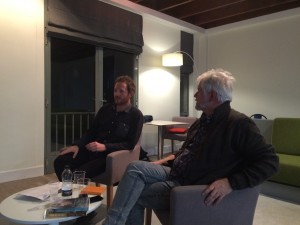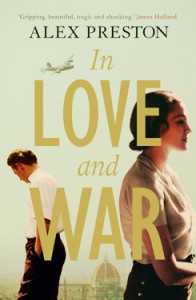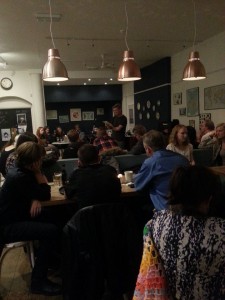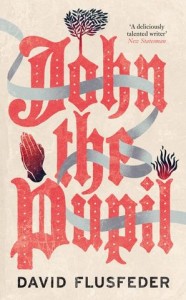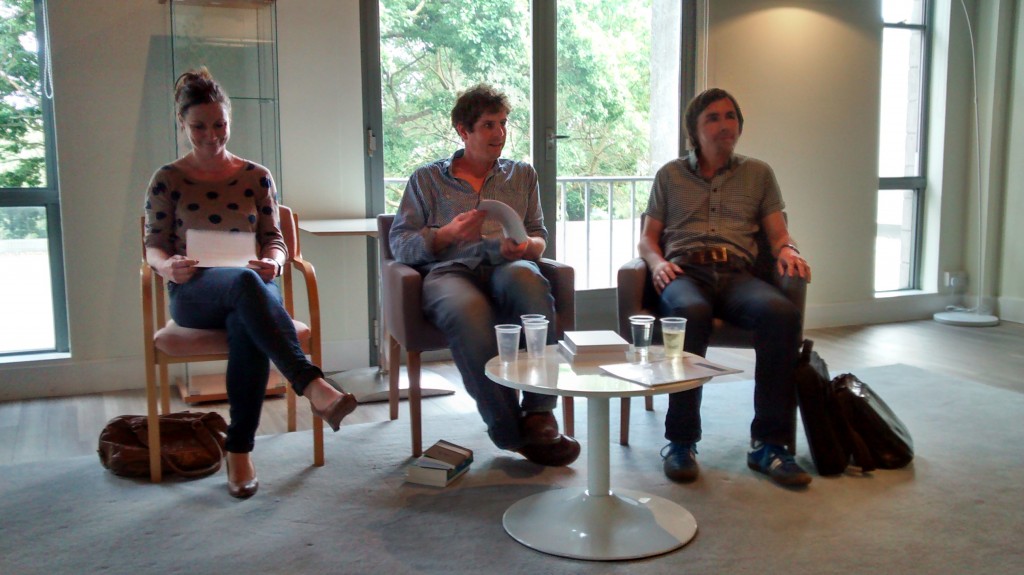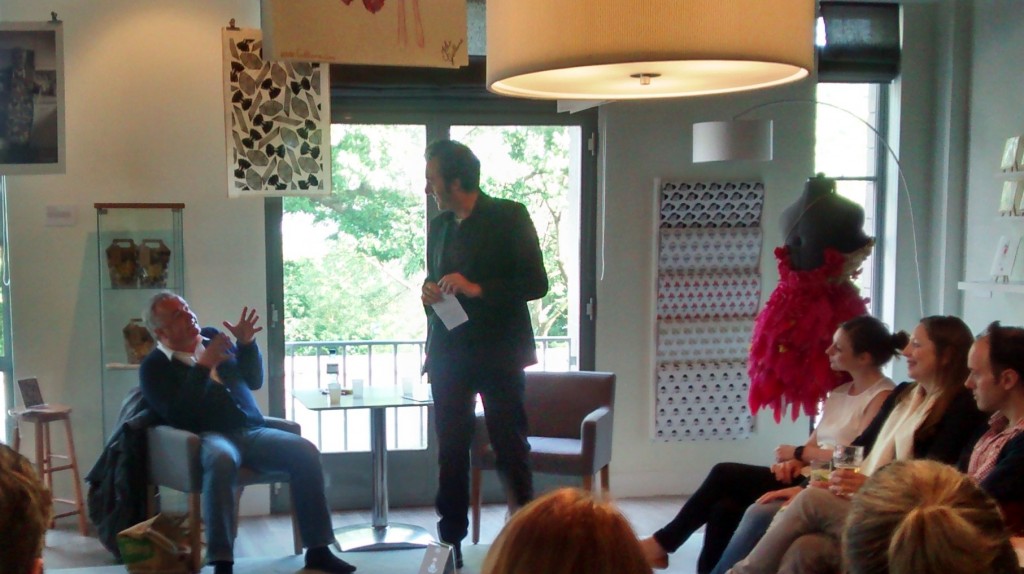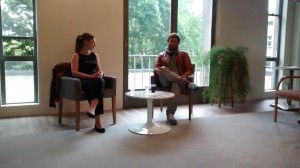This week the Creative Writing Reading Series welcomed back Roopa Farooki, a former lecturer of creative writing at Kent who now teaches at Oxford. Born in lahire, Pakhistan, and brought up in London, Farooki talked about how this affected her writing – saying that, although she always had Asian or part-asian protagonists, nationality is never what any of her novels turn on, though hey do sometimes turn on a sense of otherness. This deliberateness of not having race the central issue is obviously a deliberate tactic, but Farooki also talked about her choices of character in terms of representation – if she didn’t write about Asian characters, who would – the white middle class? She had felt previously, she said, on the subject of representation, that she had been aiming more for a non-racial universality in her novels rather invoking cultural clash – something she was, she said, changing her mind about.
She has published six novels to critical acclaim and, regularly, the Orange prize longlist: Bitter Sweets (Macmillan, 2007), Corner Shop (Macmillan, 2008), The Way Things Look to Me (Macmillan, 2009), Half Life (Macmillan, 2010), The Flying Man (Headline, 2012) and The Good Children (Headline/Tinder Press, 2014).
Six novels in in eight years is quite the productivity rate – but when asked by Dragan about this, Farooki revealed that she’s actually written twice that many – and has six completed unpublished novels at home! Although some of these were before Bitter Sweets, she did say that, despite her success in sales and prize listings, she still does get books turned down by her publisher – in the case of her first because, she feels, it was incredibly personal, and later, it seems to have been the more experimental novels that haven’t been taken off – perhaps due to a playing safe, in terms of what constitutes a sellable book, by more mainstream publishers. When asked what she did with these books, Farooki replied that (and this is unlike how David Flusfeder, Alex Preston and Nicholass Hogg talked of their ‘failed’ novels) that not only are these books ‘complete’ finished manuscripts, but that she tends not to recycle any of them into new novels – instead viewing each novel as a very separate entity – partly because, she believes of a belief that your best book is still to come, and that each book is an improvement on the one before. So whilst we may still find six (or maybe more!) experimental Roopa Farooki novels published by a more avant-garde press at some point, she was doubtful that they would ever be revisited in this way.
So, Farooki has actually written twelve novels in just over eight years – an even more impressive feat. When asked how she had achieved this – Faooki put much of this down to a disciplined schedule, particularly since she is the mother of four children. her daily schedule involves getting up at 5 and writing for 3 hours before the children wake up and she has to go to work – insisting what many of us hate to admit to – that three hours early in the morning with a coffee will invariably produce better writing than 3 hours in the evening with a glass of wine! In those 3 hours, she aims to write 500 words, but, she says, is still happy when she only gets a few hundred good ones. She also warned about getting greedy – she wrote 2,000 words recently only to have to scrap them because the writing was too sloppy – she said it was best to stop yourself at 500 to keep the writing taut.
She also talked about editing – saying that initially, when she had more time, she used to edit as she went – doing a 6 hour stretch each day, half of which would be spent re-reading and editing the last days work, and half of which would be spent writing 500-1000 new words. As she only now has 3 hours, she just writes, and the editing occurs at the end. She recommended spending as much time on editing as on the original writing, and recommended not getting too disheartened by an original draft, saying that you have to accept what you write first isn’t perfect but that there’s always a better book in there.
Conversation and reading centered around her latest novel, The Good Children, which she explained came out of an interest in the 1961Milgram experiments, which happened in response to the trial of the Nazi was criminal Adolf Eichmann, and was designed to test questions of personal culpability and the defense of following orders that the trial – and the Nazi rule, raised. In this experiment, participants were tricked into giving another supposed participant (actually an actor), electric shocks every time they answered a question posed during the experiment wrongly – these shocks were to increase in strength, and the participant was monitored by one of the scientists working on the experiment, who would urge them to continue for the sake of the experiment, and assure them of their lack of responsibility, if they expressed a desire to opt out. in Milgram’s first set of experiments, 65% of participants administered the final, fatal, 450-volt shock. Farooki sad that this interest had combined in her mind with her simultaneous reading of Seamus Heaney’s translation of Beowulf, where she became fascinated by Grendel’s monstrous mother, and by a telling of she had given one of her children, when she told him to ‘be a good boy, and do what you’re told’. This led to the question ‘do good children do what they’re told?’, from which The Good Children was born. It applies the idea of the Milgram experiments to a domestic situation, exploring the effect of a manipulative mother on her children. Although, as Dragan pointed out, Farooki has been criticized for being a personal, rather than political writer, it seemed that the domestic scenario gave her an intimacy in talking about important political questions – here of participation and authority – but also of gender – she discussed the deliberate choice to take on the voice of a male character in The Good Children and have the female children presented in the third person as a comment on how these women perceived themselves and how they were perceived. Overall, Farooki offered a perceptive discussion both of her work and her writing processes that was useful partly in its concreteness, though I have yet to get up at 5 for a coffee-fuelled writing session. Maybe tomorrow.
